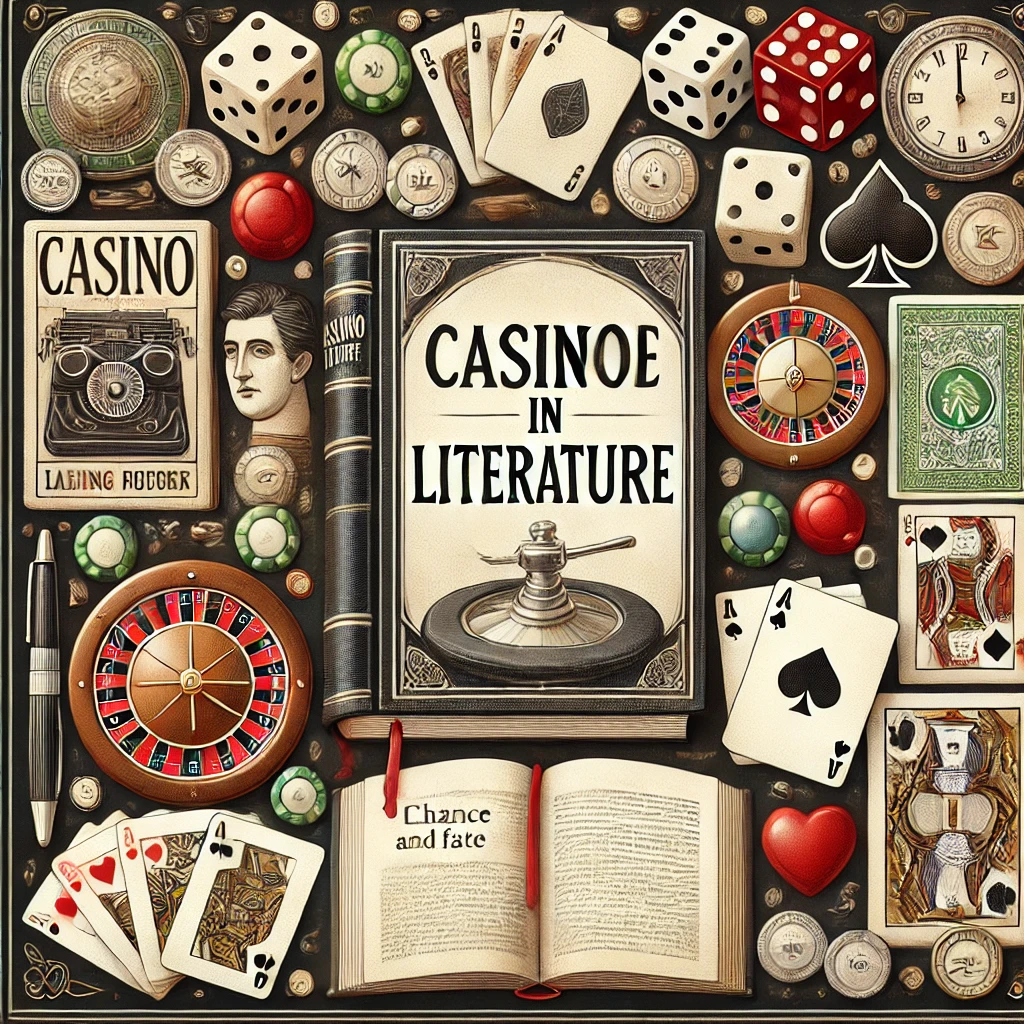Casinos in Literature: How Gambling Portrayed in Famous Books
Gambling and casinos have long been fascinating subjects in literature, often reflecting broader societal attitudes and serving as powerful metaphors for risk, chance, and human nature. Over the years, many famous novels have featured casinos or gambling as central themes, exploring the complexities of human behavior and the allure of fortune. This article provides an analysis of notable novels that feature casinos or gambling, examines how these works reflect societal attitudes toward gambling, and discusses key takeaways from these literary portrayals.
Analysis of Famous Novels That Feature Casinos or Gambling
Several well-known novels have used gambling and casinos as significant plot devices, creating memorable stories that delve into the psychology of risk and reward. Here are some of the most notable examples:
“Casino Royale” by Ian Fleming (1953)
The first novel in the James Bond series, Casino Royale, revolves around a high-stakes poker game at a fictional casino in France. Bond’s mission is to bankrupt Le Chiffre, a Soviet agent, through gambling. The casino setting provides a backdrop for intense psychological warfare, where the stakes are not just financial but also geopolitical. The novel portrays gambling as a game of skill, deception, and strategy, reflecting the Cold War’s tension and the thin line between chance and fate.
“The Gambler” by Fyodor Dostoevsky (1866)
The Gambler is one of the most profound explorations of gambling addiction in literature. Written by Dostoevsky in just 26 days to fulfill a publishing contract, the novel draws from his personal experiences with gambling. The protagonist, Alexei Ivanovich, is a young tutor who becomes obsessed with roulette at a German spa town. The story delves into his compulsive behavior, the highs and lows of winning and losing, and his destructive relationship with both the game and those around him. Gambling is portrayed as a powerful force that can consume a person’s mind and soul, leading to a cycle of hope and despair.
“Fear and Loathing in Las Vegas” by Hunter S. Thompson (1971)
Thompson’s Fear and Loathing in Las Vegas is a psychedelic journey through the heart of American excess. Set in Las Vegas, the ultimate city of gambling and hedonism, the book uses the city’s casinos as a symbol of the American Dream gone awry. While gambling is not the central theme, the casino culture reflects the surreal and chaotic nature of the protagonist’s drug-fueled escapades. The novel critiques the materialism and reckless abandon that can accompany the pursuit of fortune.
“Molly’s Game” by Molly Bloom (2014)
Molly’s Game is a memoir that recounts the true story of Molly Bloom, who ran one of the most exclusive high-stakes underground poker games in Hollywood. The book explores the glamour, risk, and eventual downfall associated with high-stakes gambling. It offers a behind-the-scenes look at the lives of celebrities, business moguls, and professional athletes who are drawn to the allure of the game. Through her story, Bloom reveals the highs and lows of the gambling world and the consequences of operating outside the law.
How Literature Reflects Societal Attitudes Toward Gambling
Literature often mirrors the prevailing societal attitudes of its time, and the portrayal of gambling in novels is no exception. Through their stories, authors capture the complexities of human nature and societal values, offering insights into how gambling is perceived.
- A Reflection of Morality and Vice: In many novels, gambling is portrayed as a moral battleground where characters face dilemmas that test their integrity, discipline, and self-control. For instance, Dostoevsky’s The Gambler illustrates the destructive consequences of addiction and the loss of self-control. The portrayal of gambling as a vice reflects society’s cautionary attitude, warning of the dangers of excess and obsession.
- Symbolism of Chance and Fate: Gambling is often used as a metaphor for life’s uncertainties and the human desire to control destiny.In Casino Royale, the high-stakes poker game is more than just a card contest; it symbolizes the larger conflict between good and evil. Here, chance and strategy determine the outcome. Similarly, the randomness of the roulette wheel in The Gambler symbolizes life’s unpredictability and the irrationality of human behavior.
- Critique of Materialism and Excess: Novels like Fear and Loathing in Las Vegas critique the excesses of gambling culture. They use it as a lens to examine broader societal issues like greed, materialism, and the pursuit of pleasure. These works often highlight the hollowness of pursuing quick riches and the moral decay that comes from unchecked desires.
Key Takeaways from These Literature Works
The portrayal of casinos and gambling in literature offers several key takeaways, providing readers with valuable insights into the human condition and the societal implications of gambling.
- The Dual Nature of Gambling: Gambling in literature is often depicted as having a dual nature—both alluring and dangerous. While it can offer moments of thrill, excitement, and escape, it also comes with the potential for ruin, addiction, and despair. This duality reflects the complex relationship humans have with risk and reward.
- The Power of Choice and Consequence: Many novels emphasize the importance of choice and consequence in the context of gambling. Characters are often faced with decisions that can lead to triumph or disaster. These stories serve as cautionary tales, reminding readers that while chance plays a role, personal choices determine one’s fate.
- A Window into Human Psychology: The exploration of gambling in literature provides a deep dive into human psychology—our desires, fears, ambitions, and vulnerabilities. Whether it’s the obsession with winning, the thrill of the game, or the despair of loss, these stories reveal a rich tapestry of human emotion and experience.
Conclusion
Casinos and gambling have been compelling subjects in literature, serving as powerful metaphors. They provide deep insights into societal attitudes and human behavior. From the calculated strategies in Casino Royale to the addictive cycles in The Gambler, these works highlight gambling’s complexities. They show its impact on individuals and society. Through their narratives, authors invite readers to reflect on the allure of chance and the consequences of excess. They explore the enduring fascination with risk and reward.

